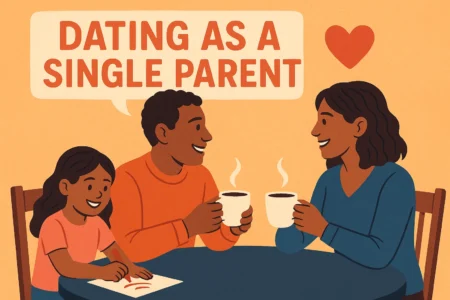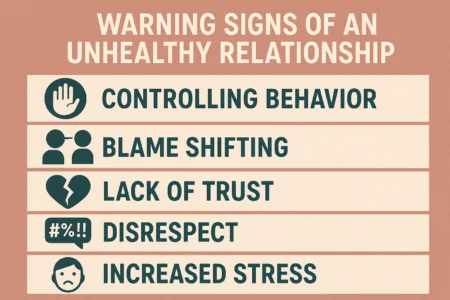So things are new, everything’s awesome, like you’re living in some kind of rom-com montage, yeah? Easy conversation, fun dates… you’re thinking ‘Yes! This is great!’ Then, inevitably, it happens. The First Disagreement. Dun dun DUN!
Maybe it’s tiny – like a misunderstanding about who was supposed to text who. Maybe it’s bigger – a real difference of opinion or someone feeling genuinely hurt. Whatever it is, that first time the smooth sailing hits choppy waters? It can feel HUGE. Like, ‘Uh oh, is this it? Are we doomed?!’ Your stomach drops, maybe you panic a little, maybe you immediately get defensive.
Slow down! Seriously. Take a breath.
A disagreement isn’t a relationship death sentence. Honestly? It’s totally normal. Think about it – you’re two separate humans trying to mesh your lives; you’re bound to bump up against each other sometimes. The real kicker isn’t that you disagree, but how you both deal with it when you do. That first argument? It’s actually a massive opportunity to see what you’re both made of. So, let’s talk How women handle the first disagreement constructively to build foundation – without totally freaking out or making things worse.
First things first: It’s gonna happen. Expect it.
Seriously, stop thinking a disagreement means you picked the wrong person or that everything’s ruined. If you never disagree, it probably means someone isn’t being honest or you’re avoiding important stuff. The goal isn’t a conflict-free relationship (spoiler: doesn’t exist). The goal is learning how to handle the inevitable conflicts together without tearing each other down. Seeing it as a ‘how do we solve this?’ moment instead of a ‘who’s right?’ battle is a game-changer.
Okay, But My Brain Screams PANIC! What Now?
Yeah, that initial wave of annoyance, hurt, or ‘OMG he doesn’t understand me!’ feeling is strong. Your instinct might be to lash out, shut down, cry, or immediately list all the reasons why you’re right and he’s clearly lost his mind.
Resist! Or at least, try to resist jumping straight into full reaction mode.
- Just. Breathe. Seriously, like a cliché yoga instructor. Take a couple of deep breaths before you say anything. It sounds dumb, but it actually helps calm that initial fight-or-flight surge.
- Maybe Don’t Talk Right Now? And hey, it’s totally fine – maybe even smart – to hit pause if you’re way too mad to talk straight. Seriously, saying something like, ‘Whoa, okay, I’m actually really worked up right now. Can we just chill for a bit and talk later when I’m not about to explode?’ is a lifesaver. Just make sure you do agree to try again later, so it doesn’t feel like you’re just running away.
## How women handle the first disagreement constructively to build foundation
Alright, you’ve taken a breath, maybe stepped away for a minute. How do you actually talk about the damn thing without it turning into World War III?
- Try Listening (Like, Actually Listening): This is the hardest part when you’re annoyed, I know. But try to shut down the part of your brain that’s just preparing your amazing comeback and actually hear him. What’s he saying underneath the grumpy tone? What’s he feeling? Doesn’t mean you gotta agree with whatever nonsense he’s saying! Just, like, try to see where he’s even coming from, you know? Asking something like, “Okay, wait, help me get why that made you feel X?” can sometimes work miracles, just showing you’re trying to understand.
- That “I Feel” Thing… Yeah, It Kinda Works: Swapping out “You always make me feel…” (instant defensiveness trigger!) for “When X happened, I felt…” sounds a bit like therapy-speak, maybe, but it really does land differently. You’re talking about your experience, which is valid, not attacking him. Try it. What have you got to lose?
- Stick to the Actual Problem: Oh man, it is SO tempting when you’re arguing about weekend plans to suddenly bring up how he never puts his socks in the hamper, or that weird comment he made last Tuesday. DON’T. Keep it focused. Deal with the sock issue later (or never, pick your battles!). Bringing up a laundry list of past grievances just confuses things and makes the current problem seem insurmountable. One thing at a time.
- It’s Not a Competition: Remember, you’re not trying to score points or prove you’re the smartest one in the room. It’s about figuring stuff out together, not winning. Can you compromise? Can you agree to disagree (if it’s minor)? Can someone genuinely apologize? Focus on fixing the issue, not on being the ‘winner’.
- Use That Time-Out Card: Seriously, if it’s getting loud, nasty, or you’re just talking in angry circles, call for that break again. “Okay, this isn’t productive right now. Let’s stop, cool off, and talk later.” Nothing good comes from pushing through when you’re both seeing red.
What His Reaction Teaches You
While you’re trying your best to be constructive, pay attention to how he’s handling it too. This is super important info!
- Is he trying to listen, even if he’s upset?
- Can he actually say what he’s feeling without, you know, being a total jerk about it – like, no insults or shouting?
- Is he willing to see your perspective?
- Is he actually trying to fix things with you, or is he just stubbornly sticking to his guns no matter what?
- Does he shut down completely and refuse to talk (stonewalling)? Big red flag, that one.
- Does he get overly defensive about everything?
How someone acts during conflict tells you a LOT about their emotional maturity and whether you can actually build a healthy partnership with them.

Making Up Matters
Okay, you got through it. Whether the talk was super awkward or surprisingly okay, don’t just act like poof it never happened the next day. That’s weird. A little effort to reconnect afterwards makes a big difference.
- Just acknowledging it: “Phew, glad we talked that out.”
- A genuine apology if you were out of line: “Hey, I’m sorry I snapped earlier.”
- A physical gesture: A hug, holding hands, whatever feels right. It just reaffirms: we’re okay, the connection is still here.
Sometimes… It IS a Big Deal
Now, all this advice assumes a relatively normal disagreement. If that first ‘fight’ involves him screaming, throwing things, calling you horrible names, being incredibly contemptuous, or reveals a massive, unbridgeable gap in core values (like, he reveals he’s secretly a lizard person… okay, maybe something more realistic!), then that’s not just a ‘disagreement.’ That’s a massive red flag telling you to run, not walk, away. Don’t try to ‘constructively handle’ genuinely bad behavior.
It’s Practice for Real Life
Look, navigating arguments is messy. Nobody likes conflict. But that first disagreement is your first chance to see how you operate as a team when things aren’t perfect. If you can both make an effort to listen, stay (mostly) respectful, focus on the problem, and reconnect afterwards, you’re building something real. You’re learning you can weather a storm together. And that ability to repair things after a fight? That’s way more important for a lasting relationship than never disagreeing at all. You got this
Frequently Asked Questions
What should women do after resolving a disagreement to strengthen their relationship?
After resolving a disagreement, women should make an effort to reconnect by acknowledging the conversation, offering a genuine apology if needed, and sharing a comforting gesture like a hug or holding hands. This reaffirms that the relationship is still strong and that both partners value working through conflicts together.
Why is it important for women to pay attention to their partner’s reaction during disagreements?
Paying attention to how a partner responds during disagreements provides insight into their emotional maturity and willingness to communicate constructively. Observing whether they listen, express their feelings respectfully, and attempt to resolve issues helps determine if the relationship is healthy and capable of weathering conflicts.
How can women use active listening to handle disagreements better?
Women can improve their handling of disagreements by truly focusing on listening to their partner without preparing their response in advance. Paying attention to what their partner is feeling and the reasons behind their perspective, and asking clarifying questions like, ‘Help me understand why that made you feel X?’ can foster understanding and reduce defensiveness, leading to more productive conversations.
What are some effective ways for women to de-escalate conflict during a disagreement?
Women can de-escalate conflict by practicing deep breathing to calm their nerves, pausing the conversation if they feel overwhelmed, and communicating their need for a break in a respectful manner. Calling for a time-out to cool off allows both partners to regain composure and prevents escalation into a shouting match or hurtful exchanges.
How should women handle their first disagreement in a relationship constructively?
Women should approach their first disagreement with calmness and patience. It’s important to listen actively, try to understand their partner’s feelings and perspective without immediate judgment, and focus on addressing the specific issue at hand without bringing up past grievances. Using ‘I feel’ statements instead of accusatory language and taking breaks if emotions run too high can help manage the situation constructively.





